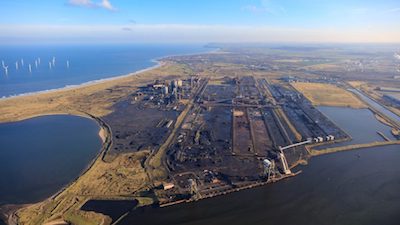BP has announced that it is developing plans for the UK’s largest blue hydrogen production facility, targeting 1GW of hydrogen production by 2030.
The project would be located in Teesside and with a final investment decision (FID) in early 2024 could begin production in 2027 or earlier.
Blue hydrogen is produced by converting natural gas into hydrogen and CO2 which is then captured and permanently stored.
The project would capture and send for storage up to two million tonnes of carbon dioxide (CO2) per year, equivalent to capturing the emissions from the heating of one million UK households.
BP said the proposed development, H2Teesside, would be a significant step in developing its hydrogen business and make a major contribution to the UK Government’s target of developing 5GW of hydrogenproduction by 2030.
Teesside account for over 5% of the UK’s industrial emissions and the region is home to five of the country’s top 25 emitters.
BP’s executive vice president of gas and low carbon energy Dev Sanyal said: “Clean hydrogen is an essential complement to electrification on the path to net zero.
“Blue hydrogen, integrated with carbon capture and storage, can provide the scale and reliability needed by industrial processes.
“It can also play an essential role in decarbonising hard-to-electrify industries and driving down the cost of the energy transition.
“H2Teesside, together with NZT and NEP, has the potential to transform the area into one of the firstcarbon neutral clusters in the UK, supporting thousands of jobs and enabling the UK’s Ten Point Plan.”
BP has begun a feasibility study into the project to explore technologies that could capture up to 98% of carbon emissions from the hydrogen production process.
The company said H2Teesside could support the conversion of surrounding industries to use hydrogen in place of natural gas, playing an important role in decarbonizing a cluster of industries in Teesside.
BP said it has agreed a memorandum of understanding (MoU) with Venator, one of the largest global producers of titanium dioxide pigments and performance additives, to scope the supply of clean hydrogen to its flagship Teesside plant.
BP has also agreed an MoU with Northern Gas Networks (NGN), the gas distributor for the North of England, to work together to initiate decarbonisation of the gas networks in the UK, helping to further decarbonise both industrial customers and residential homes through its gas network.
Separately, BP has also signed an MoU with Tees Valley Combined Authority (TVCA) to explore thepotential for green hydrogen in the region, including the development of Teesside as the UK’s firsthydrogen transport hub, as announced by the UK’s Department for Transport in September 2020.
